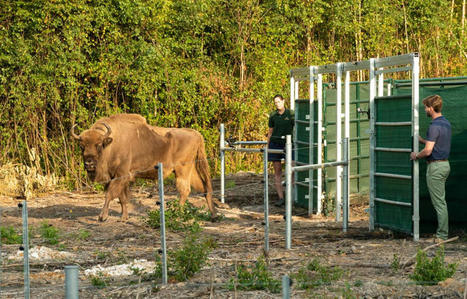Les trois femelles seront bientôt rejointes par un mâle en vue d’agrandir le troupeau. Dans une forêt proche de Canterbury (Royaume-Uni), trois bisons ont récemment élu domicile dans le cadre d’un ambitieux projet de réintroduction. C’est la première fois depuis des millénaires que l’animal va à nouveau arpenter le territoire britannique.
Via Hubert MESSMER



 Your new post is loading...
Your new post is loading...










via @WildwoodTrust Consulter https://wildwoodtrust.org/wilder-blean/